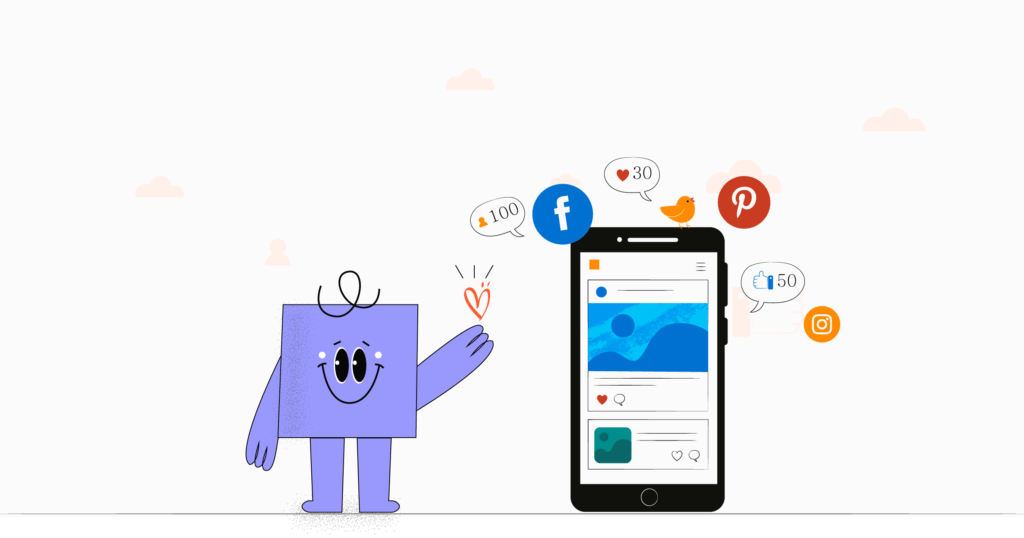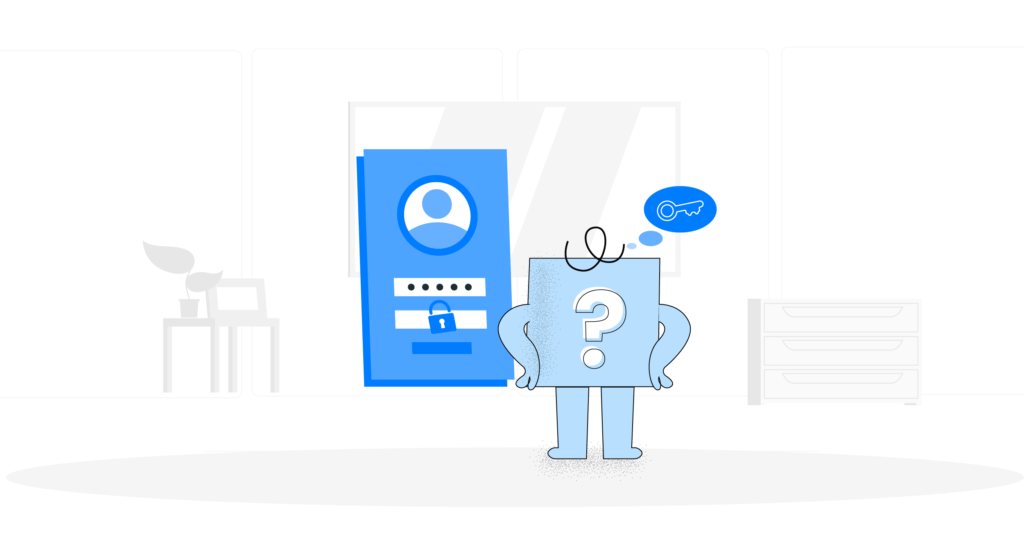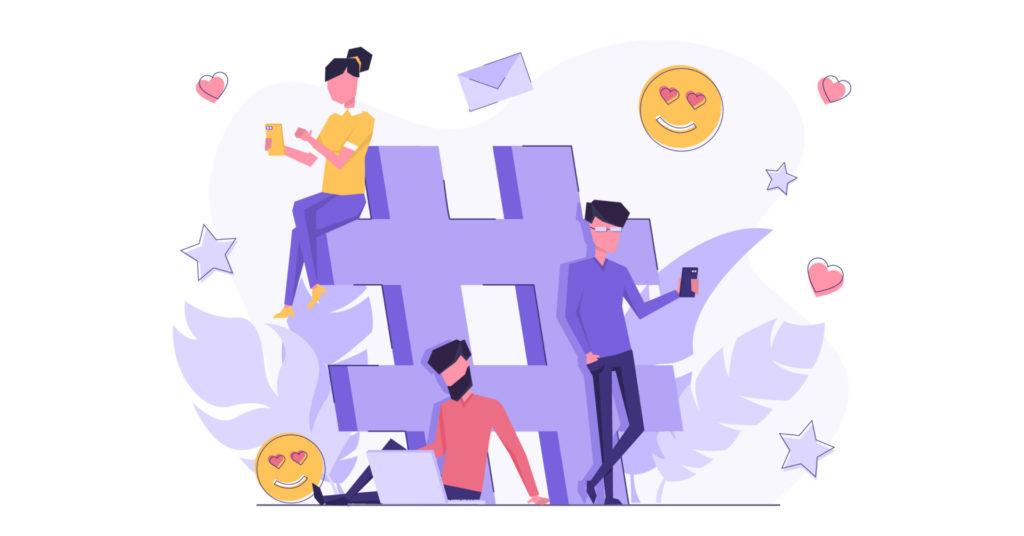The big black hole of social media is a bewitching space for all our young minds. It has proven to be a space for their minds to wander to their heart’s content. At the age where their inquisitive hormones are all over the place, social media is their platform to explore.
The pandemic has ensured that each individual obtains a gadget. May that be for education, work, leisure or connectivity. This is where teenagers got glued to their screens with no option of stepping out of their homes.
Years of research suggests that teenagers have a higher need for reward and recognition. Both of which they can achieve through social media. The amount of likes on their posts, the number of views on their stories increases their Instagram attention span and acta as an accomplishment for them.
With each like, share or tag, they get a dopamine and oxytocin rush. Both of these are happy hormones. Therefore social media acts as a stimulant for the teenagers’ happy hormones. As time goes on, teenagers begin to rely on this stimulant to feel the slightest bit of happiness.
a is a bewitching space for all our young minds. It has proven to be a space for their minds to wander to their heart’s content. At the age where their inquisitive hormones are all over the place, social media is their platform to explore.

Reports suggest that around 75% of teenagers have created their individual accounts on various social media platforms and they visit each site several times a day which adds up to multiple hours per day. The excessive need to check on their mobile has led them to social media distraction and disassociated from their environments.
We can recognize the addiction towards social media through the following:
· Checking social media during an in person conversation
· Scrolling through social media for more than 6 hours per day.
· Prefering to be alone and using social media as a distraction rather than socialize with people.
· Finding it difficult to cut down the usage of social media
· Loss of interest in activities that you enjoyed earlier
· Social media affects concentration of a person making them feel anxious or lost when not using social media for a few hours
· Craving for likes and comments on social media
Studies also suggest that since teenagers are used to the ‘highs’ they get from the recognition and validation through social media, they are more likely to want to be in that state frequently which is why they are prone to internet distractions either beginning from their teenage years or as adults.
The sense of comfort and familiarity they receive through their dopamine and oxytocin highs is what keeps them hooked on addictive substances.
Varun* was finally returning to school after two years of online schooling. It was as if he was directly promoted from sixth grade to ninth grade. The school, his friends, his teachers, his classroom, all of it seemed so different. But he was happy to finally be out of home and amongst his friends.
As the day went on, Varun began getting restless. He wanted to step out of his chair, take a walk around the classroom, have a snack, maybe even take a nap. But he was aware that he would be punished if he did anything impulsively. Therefore, he sat at his desk, uncomfortable, fidgeting with his stationery and paying absolutely no attention towards his teacher.
He had lost his focus within the first period itself. The consistent voice of his teacher seemed monotonous within the first few minutes of her teaching. He could not understand the theorem she was explaining and was not interested in asking his doubts about it.
Endlessly scrolling through facebook, instagram, tiktok, pinterest, twitter and snapchat accustoms these fragile minds to the attention span of barely a few minutes. Which means, they are so used to scrolling on to something else every few minutes, that their mind finds it difficult to focus on anything for more than a few minutes.
As the social media distraction statistics for teenager and youth aged 18 to 22 suggest:
46 percent of teens say they use the internet ‘almost constantly.’
95 percent of teens use YouTube, and 19 percent use it ‘almost constantly.’
67 percent of teens use TikTok, compared to 62 percent who use Instagram and 59 percent who use Snapchat.
Only 32 percent of teens use Facebook, compared to 71 percent of teens in 2014–15.
As rightly stated in the research done by Stanford University, California, the episodic memory of frequent social media users is highly affected. Supported by the study done by National Centre for Biotechnology Information, UK, which stated that the attention span of youngsters has reduced from 12 seconds to 8 seconds between the years 2000 and 2013.
If the same pattern is to be observed, it would not be wrong to deduce that the attention span must have reduced from 8 seconds since 2013 to the current year of 2022.
A study by Hopelab and Well Being Trust (2018) stated that 93% of youth aged 14-22 use social media, most daily. The frequency of social media usage was higher during the pandemic but reduced post pandemic. In 2019, 41% of teens said they enjoyed spending time on social media and in 2021 that percentage reduced to 34%.
Unfortunately, the world does not move as fast as the posts on the screens do. Hence, the discrepancy between real life speed and reel life speed somewhat annoys our teenagers. They no longer have the patience to walk down the street at a human pace or indulge in a substantial conversation.
Varun somehow survived till lunch break. Stepping out of the classroom felt like stepping out of a prison. He was playing to his heart’s content during the break time. But soon he heard the bell ring and all the students began returning to their classrooms. Unwillingly, Varun too returned to his desk.
By the end of the school day, Varun felt unfocused, lost, uninterested and irritated. He began missing the comfort of his home. Where he attended school online, moved about his house and even played online games in between periods.
Returning home, Varun threw his bag on the couch and ran straight towards his room, picked up his mobile and began checking his notifications. The amount of notifications he had received overwhelmed him. Post which, he was glued to his phone for hours. He refused the snack offered by his mom.
Research done by Larry Rosen observed that students lost their concentration every 3 minutes due to the uncontrollable urge to check their social media. Their attention span reduced with the increase in the time spent online. This being irrespective of the significance of the task they were to focus on.
Their habits of using social media simultaneously to studying is glorified as the ability to multitask. When in reality it is hampering with the teenager’s memory process along with
Symptoms of attention deficit hyperactivity disorder (ADHD), depression, sleep disorders, anxiety are a common occurrence in teenagers who are highly exposed to social media.
The next day, Varun refused to get out of bed and go to school. He cried and threw a tantrum when his father shouted at him for it. But through his choked voice, he screamed back that school made him feel suffocated. He could not understand what his teachers spoke. He felt he was dumb and wanted to stay home instead of facing his teachers.
His father was shocked at his reaction and the first thing that came to his mind was to take Varun to his school counselor and explain the current dilemma.

Reverse the effects of constant social media use.
Detox with therapy.
How to Deal With It
The behaviour of constantly checking their phones, not responding to questions or conversations is a result of habit. Their mind has gotten used to constantly having something to view on the screen.
Like any other habit, this habit too can be countered and gotten rid of.
Monitor screen time:
As observed the teenagers endlessly scroll without any attention towards the amount of time they are wasting on their phones. Consciously measuring the amount of time being spent staring at the screen can act like an alarm.
Keep a conscious watch of when you opened your social media apps and till when you were scrolling through them gives you an idea of the amount of time you have spent on it. Since we all check social media multiple times a day, do this each time you begin using your phone.
You can measure the amount of time you spend on all social media apps in general or pay close attention and monitor the amount of time you spend on each social media app separately.
That being done, question yourself as to “Am I getting anything productive done from my scrolling on this social media platform?”, “Is it helping in any way?”.
If not, begin reducing your time on that specific app consciously.
Taper down usage:
Like any other habit, the addiction to social media has to be changed over time and in a systematic manner. Monitoring your screen time will give you a general idea about how much time you spend on social media daily. If you monitor closely, you will be able to even notice how much time you spend on specific social media apps on an average.
Once you have this clarity, you have to voluntarily decide as to how much time you will reduce for scrolling through social media.
For instance, if you spend about 5 hours on social media, begin with reducing it to 3 hours per day, then gradually reduce it to only 2 hours and so on. Up until you feel that you do not have the extreme desire to check your social media without any reason.
Question your feelings:
Social media has the power to make you feel and to push you down the spiral of negative emotions. It can make you feel ashamed of your own body, or question your skills and achievements. Self doubt and loneliness are the major feelings triggered due to social media.
Ask yourself what social media is making you feel. Do you feel entertained and relaxed after scrolling through it or is it stirring up negativity in your mind?
If it is the second option, it is an indication that you immediately need to switch off your screen.
Log out:
Social media apps require you to be logged into. Which gives you the control to when you want to indulge into it and when you want to refrain from it.
Hence, if you want to reduce your social media distraction, make sure to log off after you have used it. This way, you will not get continuous notifications after each like or message which will hold you back from checking your phone frequently.
The task of logging in to the social media app to be able to check it will also act as a demotivator and hold you back from using excessive social media.

Ananda Is Here to Help
Ananda mental wellness caters to those who wish to work on social media addiction. Our certified counsellors are available to guide you and monitor your journey towards development.
*The names mentioned are purely fictional and do not indicate towards any specific individual
Read More:
The Psychological Effects and Significance of Dahi Handi, Navratri and Bhondla
Dhol Tasha Pathaks: Devotion and Psychological Perks
Western Festivals and Their Effect On Mental Health
Unleash the Colours Of Happiness
Impact of Social Media among Married Couples







